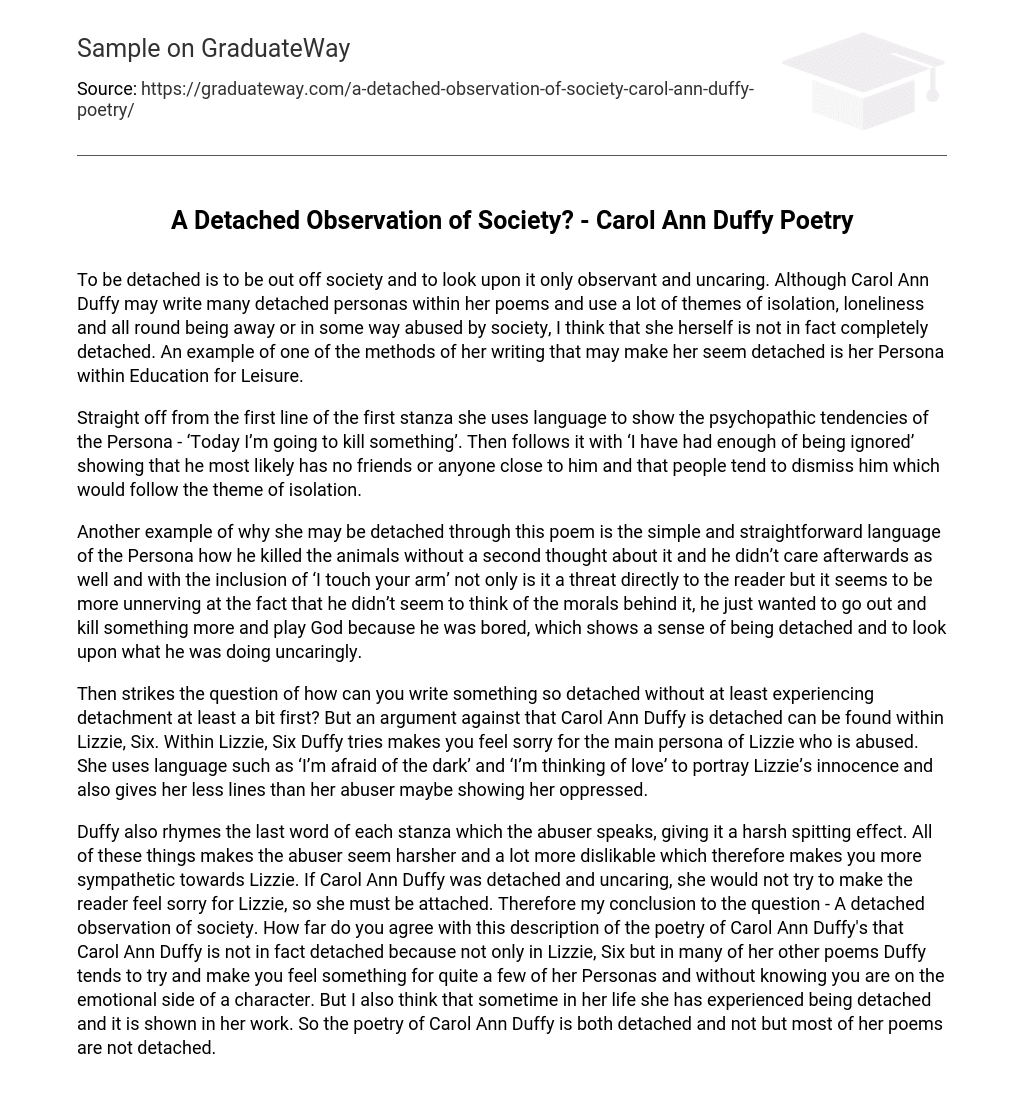To be detached means to be excluded from society and to observe it without any emotional investment. Despite Carol Ann Duffy frequently portraying detached personas in her poems and exploring themes of isolation, loneliness, and mistreatment by society, I believe that she herself is not entirely detached. Her poem “Education for Leisure” serves as an example of her writing technique that may give the impression of detachment.
In the first stanza, the Persona immediately conveys their psychopathic tendencies through language – “Today I’m going to kill something”. Additionally, they express their frustration of being constantly ignored, indicating a lack of friends or close relationships and a recurring theme of isolation.
The poem offers another example of why the persona may feel detached. The straightforward language used by the persona in describing how he killed the animals without any hesitation or remorse suggests his lack of concern. In addition, the inclusion of the phrase ‘I touch your arm’ not only directly threatens the reader, but it is even more unsettling that the persona didn’t seem to consider the moral implications of his actions. It seems that he simply wanted to go out and kill more, playing god out of boredom, displaying a detached and indifferent attitude towards his actions.
Then, the question arises: how can you write something so detached without at least experiencing detachment to some extent first? However, an argument against Carol Ann Duffy being detached can be found within Lizzie, Six. In Lizzie, Six, Duffy attempts to evoke sympathy for the main persona, Lizzie, who is subjected to abuse. She employs language like ‘I’m afraid of the dark’ and ‘I’m thinking of love’ to depict Lizzie’s innocence and also grants her fewer lines compared to her abuser, possibly highlighting her oppression.
Duffy employs rhymes in each stanza to mimic the abusive words spoken by the abuser, creating a harsh and contemptuous effect. These techniques intensify the abuser’s unlikeability, thereby evoking sympathy towards Lizzie. If Duffy were detached and indifferent, she would not attempt to elicit pity for Lizzie; hence, she must be emotionally invested. Consequently, it can be concluded that Duffy’s poetry offers a detached observation of society. However, it is important to note that this description does not wholly apply to all of Duffy’s work. In Lizzie, Six and many other poems, Duffy endeavors to evoke emotional responses from readers, placing them in alignment with the character’s emotions. Nonetheless, there are instances in which Duffy’s personal detachment is apparent in her poetry. Thus, while some of her poems may exhibit detachment, the majority do not.





